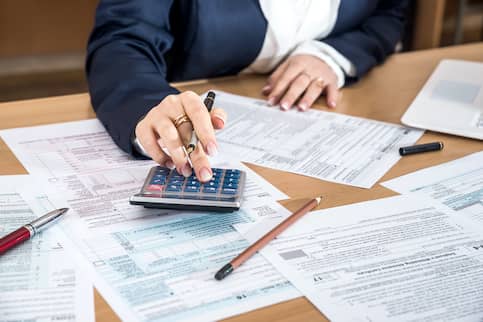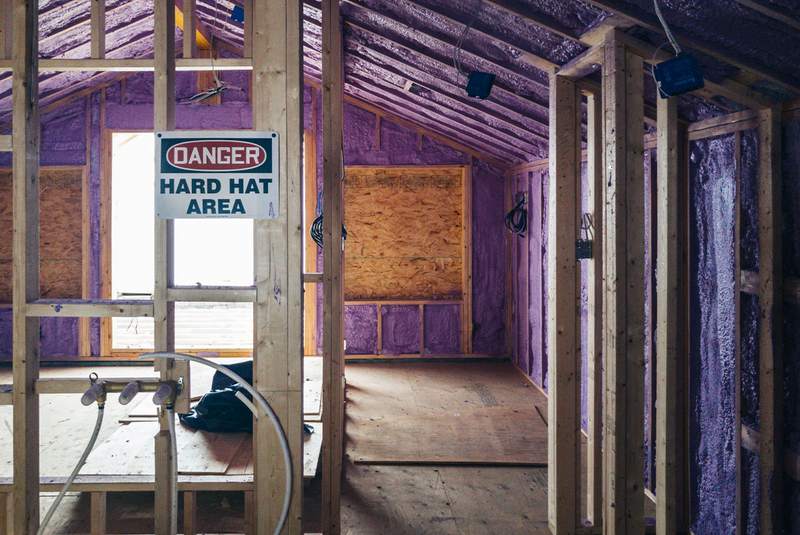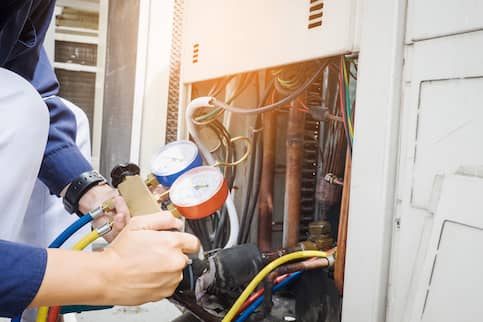As a homeowner, one of the expenses that you just can’t avoid is property taxes. If you’re looking to buy a home, make sure you understand how much you’ll need to pay for property tax. In some cases, they can be a bit pricey but luckily there are ways you can lower your property taxes.
Read on for more information on what makes property taxes go down and tips to reduce your own property tax.
Property Tax Overview
Governments have long used property taxes to provide services throughout the community. A few things that might be funded by your property taxes include public schools, community improvements and local services.
Of course, the amount you pay in property tax will vary due to state and local government laws. But the amount you pay will be based on the assessed value of the property. A county tax assessor will determine the value of your property each year in time for the tax bill to arrive.
When the value of your property increases in the eyes of a tax assessor, you’ll see your bill for property taxes rise. But there are a few ways to lower them, including applying for exemptions and filing tax appeals.
See What You Qualify For
Buy A Home
Discover mortgage options that fit your unique financial needs.

Refinance
Refinance your mortgage to have more money for what matters.
Tap Into Equity
Use your home’s equity and unlock cash to achieve your goals.
8 Tips To Reduce Property Taxes
Let’s explore how to lower your property taxes so that you can save more money on the upkeep of your home.
1. Limit Home Improvement Projects
Since an increase in your home’s value will lead to a rise in property taxes, it makes sense to limit home improvement projects. When you complete certain home improvement projects, like boosting curb appeal, adding a pool or revamping a kitchen, the value of your home is sure to rise. Since the value will rise, so will your property taxes.
If you want to avoid an increase in your property tax bill, limiting home improvements can be helpful. Painting your house, landscaping, and other minor upgrades that do not require permits are unlikely to significantly alter property taxes. However, your home is an investment, so you still want to build equity and increase your property value.
One way to put off an increase in your property taxes would be to press pause on a renovation, remodel or other home improvement project until after your annual property tax assessment. This way you can delay your property taxes going up – at least until the next reassessment.
2. Research Neighboring Home Values
Doing your research about the home values in your neighborhood can pay off quickly. You can often find the current market value of the homes in your neighborhood as a free resource available to the public. Once you have the information in hand, compare your property’s value to the homes around you.
Look for any discrepancies that don’t quite add up. For example, compare the square footage, number of bedrooms, and outdoor features of the neighboring homes. Let’s say you find out that your neighbor’s four-bedroom home is assessed at $300,000 but your two-bedroom home is assessed at $310,000. The difference could be a mistake by the county assessor.
If you find anything that seems like an error, call the assessor to ask. In the worst case, they will stand by their original property assessment and present their reasoning. In the best case, they’ll admit to a mistake and lower your property’s value – and your taxes.
3. See If You Qualify For Tax Exemptions
Many state and local governments provide property tax exemptions for a variety of reasons. A few common exemptions are for senior citizens, veterans, homesteaders and certain agricultural uses. Check to see if your property qualifies for an exemption. You might be able to save a significant amount of money on a tax reduction by making a call to find out.
4. Participate During Your Assessor’s Walkthrough
Instead of allowing the tax assessor to walk through your home alone, take the time to walk with them during your home’s assessment. It is not required that you let an assessor enter your home, but not letting them do so can potentially increase your tax bill, as the assessment will be based on estimates and other homes in your area.
Take this opportunity to point out your home’s positive and negative features. Share the highlights of your new bathroom, but also point out the small defects throughout your house. With a clear picture of your home, the tax assessor can provide a more accurate estimate of your property’s value – and you don’t have to worry as much about making the home improvements you want or need.
5. Check Your Tax Bill For Inaccuracies
Checking out the tax bill itself can be an easy way to lower your property taxes. You can likely obtain a free copy of your property tax bill from the local government offices. With that in hand, check out the details of your tax bill.
You should ensure that the size of the property and the square footage of the building are accurate. Also, confirm that any extra features – such as land improvements or swimming pools – are appropriately reflected.
If you find any issues, talk to the tax assessor. In many cases, they’ll make the correction for you.
6. Get A Second Opinion
If you disagree with the valuation determined by the tax assessor, consider hiring an independent appraiser. Although it may cost a few hundred dollars, it could be worth it.
If the independent appraiser determines a lower valuation of your primary residence, second home or other real property, then you can typically have the assessed value lowered as well. Depending on where you live, a lower valuation could save you thousands of dollars each year.
7. File A Tax Appeal
A tax appeal can be a final option for homeowners who want to lower their property taxes. Although you cannot argue against the tax rate, you could file an appeal with the assessor’s office to change the assessed value of your home.
Unfortunately, this can be a costly process that often requires the help of a lawyer. But it could be worth it in some cases. If you pursue this option, you’ll need to provide details about the condition of your property for review. A board will determine whether you win the appeal to lower the tax assessment on your property.
8. Consider A Refinance
If all else fails, you might consider refinancing your mortgage to help relieve some of your property tax burden. One way to do this would be taking out a rate-and-term refinance to lower your mortgage payment. Your property taxes won’t go down, but your total monthly mortgage payment, which bundles property taxes with your payments on your mortgage principal and interest, might.
View Your Refinancing Options
See recommended refinance options and customize them to fit your budget.
The Bottom Line
The costs can add up quickly for property owners. If you’re struggling to cover your property taxes, consider applying for tax relief programs or tax deductions.
If you can’t qualify for tax relief, you might consider refinancing to help cover the costs of your property taxes.

Miranda Crace
Miranda Crace is a Staff Writer for Rocket Companies, bringing a wealth of knowledge about mortgages, personal finance, real estate and personal loans for over 10 years. Miranda is dedicated to advancing financial literacy and empowering individuals to achieve their financial and homeownership goals. She graduated from Wayne State University, where she studied PR writing, film production and film editing. In her spare time, Miranda enjoys traveling, actively engages in the entrepreneurial community, and savors a perfectly brewed cup of coffee.












